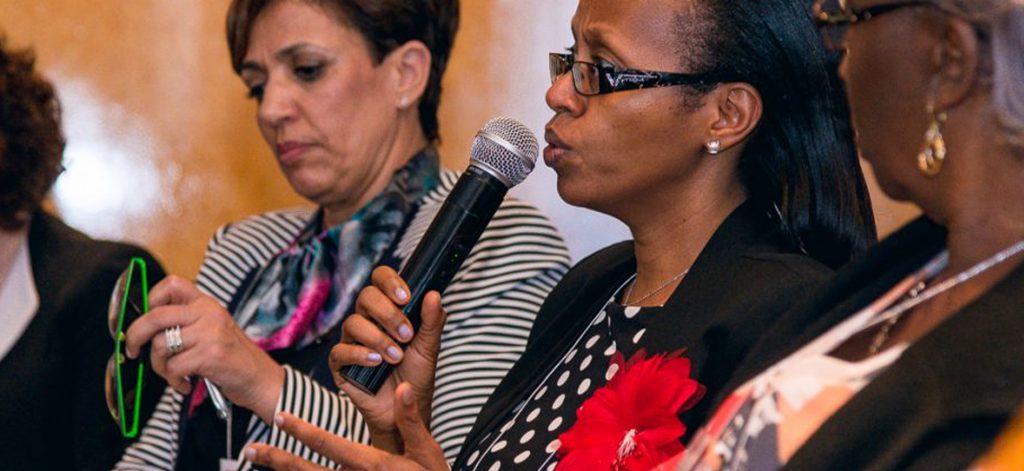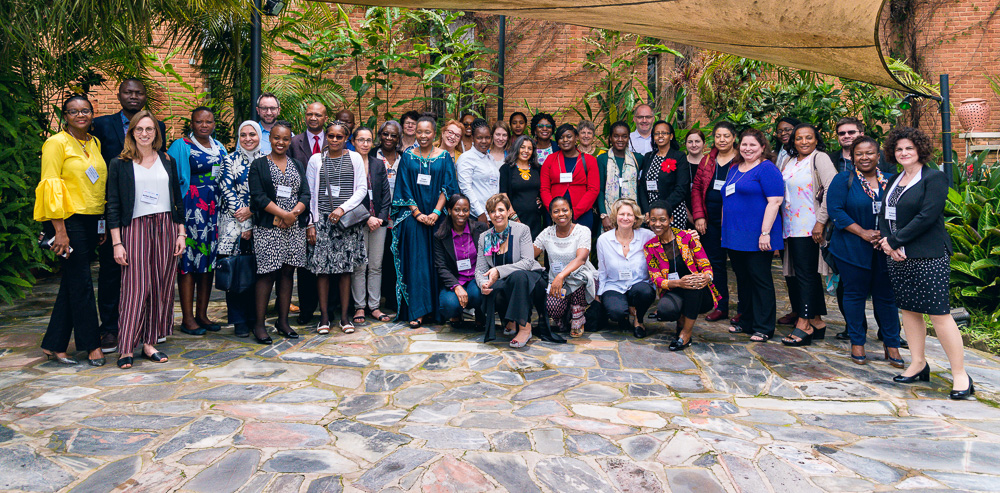By: Cynthia Macdonald
11 Apr, 2018

From March 22 to 24, CIFAR hosted its second Women in Science Leadership Workshop in Kigali, Rwanda.
Its aim was to support inclusive leadership in academia, with an emphasis on developing leadership, expanding global networks, and providing mentorship and coaching for the next generation of young researchers.
Over 30 participants from 12 countries (Cameroon, Egypt, Nigeria, Rwanda, Ethiopia, Ghana, South Africa, Tunisia, Uganda, Kenya, the USA and Canada) engaged in a series of interactive activities and facilitated discussions. The workshop began with a panel of distinguished speakers; participants were invited to share personal experiences and needs for leadership on the continent and beyond. Discussions centred around the theme of diversity and inclusion in academia.
According to UNESCO, fewer than 30 percent of the world’s scientific researchers are female. Barriers such as discrimination in hiring, wage disparities, unfavourable workplace environments and parental leave policies all contribute to this significant gender imbalance. At the workshop, participants shared stories from their own careers, and offered proven and possible solutions to these and other hurdles they had encountered.
One powerful component was a performance by the all-female Ingoma Nshya drumming ensemble. Comprised of both Hutu and Tutsi women, Ingoma Nshya arose in the wake of Rwanda’s devastating genocide in the mid-1990s. Drumming is considered a uniquely male activity in Rwanda, with drums intended to be played for the king alone. The troupe’s inspirational message of leadership, carving one’s unique path, and empowerment was a perfect metaphor for the workshop’s objectives.
The workshop’s location was also significant. Although it is on the UN list of 48 least developed nations, Rwanda is one of the most progressive in terms of gender equality. Over 60 per cent of its parliamentarians are female, and its female labour force participation is among the highest in the world (86 per cent, compared to 82 percent in Canada and 56 per cent in the United States).
Keynote speaker Agnes Binagwaho, the country’s former health minister and current vice chancellor for the University of Global Health Equity, called for a collaborative model of leadership to be adopted within the scientific community. “Equity means to give everyone the chance to reach the top,” she said.
“Equity means to give everyone the chance to reach the top.”
Other notable speakers included biomedical scientist Rose Leke of Cameroon, and Oregon-based chemist Geri Richmond. The founding director of COACh, a group dedicated to the advancement of women in science, Richmond led a thought-provoking presentation on the art of negotiation and building networks.
A number of male scientists were also present, including Azrieli Global Scholar Kieran O’Donnell (McGill University), of the CIFAR Child & Brain Development program. They offered suggestions on how better to offer mentorship and support to their female colleagues.
The workshop was led by CIFAR’s Pamela Kanellis, Senior Director Research & Global Academy, and by Nadège Compaoré, Research Analyst, in partnership with the African Academy of Sciences, the Global Young Academy, and the African Institute for Mathematical Sciences. It was an important pre-event for registrants going on to attend the Next Einstein Forum, also held in Kigali. The NEF is Africa’s premier scientific conference, designed to raise the global profile of African science and policy innovations.
Said Compaoré: “There was a real desire for this type of workshop, in that it wasn’t discipline-specific. It provided lessons in leadership that could be applied around the world, in a variety of contexts.” Added Kanellis: “The workshop was a great success. One measure of that was that some participants described how this workshop influenced their own career trajectory, and many participants expressed the intention of recreating this model and sharing the information in their home countries.”

Banner image from left to right: Antonia Maioni (Dean of Arts, McGill University & CIFAR Board Member); Habiba Chakir (Senior Biologist/Evaluator, Health, Canada); Sonia Kamikazi (Corporate Quality Manager, RwandAir); Rose Leke (Chair of the Board of Directors, National Medical Research Institute); Jennifer Thomson (President of the Organization of Women in Science for the Developing World & Emeritus Professor, University of Cape Town). (Credit: The Next Einstein Forum)